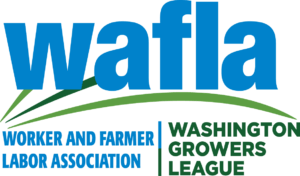Guestworker petition filing fees may increase

Guestworker petition filing fees may increase
Capital Press
March 17, 2023, by Sierra Dawn McClain
It may soon get more expensive to bring guestworkers into the U.S.
U.S. Citizenship and Immigration Services has proposed a rule that would significantly increase filing fees for H-2A and H-2B petitions — in some cases, by more than double.
USCIS officials proposed the fee hike to cover internal expenses. They said the agency’s costs have recently spiked due to staffing costs, increased asylum claims, longer processing times and expanded humanitarian programs.
Critics say the proposed fees are unfair and would disproportionately hurt small businesses.
In a letter to agency officials, several senators, including Joe Manchin, D-W.V., and Mike Crapo and James Risch, both R-Idaho, criticized the proposal, saying “the fee increases will be particularly burdensome for small businesses relying on H-2A and H-2B nonimmigrant visas to meet their workforce needs.”
In recent years, farm employers have relied more on guestworker programs as a source of reliable labor. Between 2017 and 2022, the number of workers certified through the H-2A program increased by 86%, according to Department of Labor data.
The cost of using the programs is also increasing through regulations and changes to how wages are calculated.
Mike Omeg, director of operations for Orchard View Farms, a tree fruit operation in The Dalles, Ore., views the latest proposal as yet another blow to farm employers.
“In order to stay in business, our company needs the H-2A program to work for us,” he said.
The proposed rule has five main parts.
The first change would be increased filing fees.
Employers currently pay a $460 petition fee each time they fill out an I-129 form, a petition requesting a visa for one or more prospective guestworkers. The rule would increase the petition fee from $460 to $1,080 for named H-2B workers and $1,090 for named H-2A workers — 135% and 137% increases, respectively.
The proposed rule also differentiates between “named” and “unnamed” workers. Named means the employer requests a visa for a specific worker by name. Unnamed means the employer only requests the number of workers needed.
USCIS says it requires less time to process a petition with unnamed workers because named workers go through a more elaborate background check. For that reason, the rule would charge employers more to request named workers: in the H-2A program, $530 for unnamed versus $1,090 for named; in the H-2B program, $580 for unnamed versus $1,080 for named.
“It effectively penalizes employers who work diligently to create lasting bonds with H-2A workers and encourage their return in subsequent years,” wrote Samuel Kieffer, vice president of public policy at the American Farm Bureau Federation.
Omeg, the grower, said the rule would be costly. This season, he plans to bring in 58 H-2A workers, all of whom are named.
The rule would also cap at 25 the number of guestworkers an employer could request visas for on a single petition. Currently, there is no limit.
“Why is that (25) the magic number?” said Enrique Gastelum, CEO of Wafla, an agricultural labor association.
That means Omeg would need to fill out three separate petitions to request 58 workers: one for the first 25, a second for the next 25 and a third for the remaining 8. He would pay a fee for each form.
Omeg will need to request more H-2A workers before harvest, meaning more forms and fees.
The new rule would also require employers to pay additional fees when seeking to extend a worker’s stay in the U.S. — for example, if harvest took two weeks longer than expected.
Finally, USCIS plans to add a $600 “Asylum Program Fee” to each petition to fund the government’s humanitarian asylum program for people seeking shelter in the U.S.
USCIS proposes tacking a $600 fee onto every I-129 or I-140 petition filed by an employer, operating under the assumption that businesses have more “ability to pay” than other petitioners. Critics say it is unfair for businesses to bear this cost alone and argue that fees should be spread evenly among petitioners.
Kieffer, of the Farm Bureau, said it is “illogically punitive” for employers who comply with stringent legal guestworker program requirements to pay fees to fund complications stemming from “unchecked illegal migration.”
USCIS issued the draft rule on Jan. 4. The public comment period closed on March 13, and experts predict the agency will issue its final rule sometime this year.
